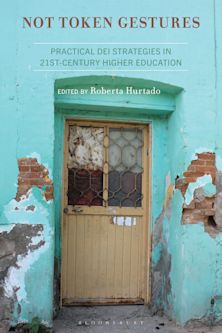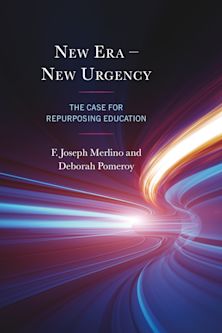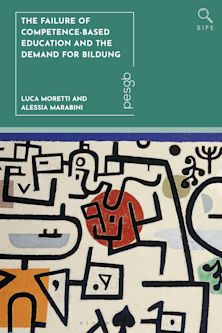Education Myths
What Special Interest Groups Want You to Believe About Our Schools--And Why It Isn't So
Education Myths
What Special Interest Groups Want You to Believe About Our Schools--And Why It Isn't So
This product is usually dispatched within 3 days
- Delivery and returns info
-
Free US delivery on orders $35 or over
Description
How can we fix America's floundering public schools? The conventional wisdom says that schools need a lot more money, that poor and immigrant children can't do as well as most American kids, that high-stakes tests just produce teaching to the test, and that vouchers do little to help students while undermining our democracy. But what if the conventional wisdom is wrong?
In Education Myths: What Special Interest Groups Want You to Believe About Our Schools-And Why It Isn't So, Jay Greene and the researchers at the Manhattan Institute have gathered the evidence to show that much of what people believe about education policy is little more than a series of myths.
Greene takes on the conventional wisdom and closely examines eighteen myths advanced by the special interest groups dominating public education. In addition to the money myth, the class size myth, and the teacher pay myth, Greene debunks the special education myth (special ed programs burden public schools), the certification myth (certified or more experience teachers are more effective in the classroom), the graduation myth (nearly all students graduate from high school), the draining myth (choice harms public schools), the segregation myth (private schools are more racially segregated), and several more.
Greene's reasoned and accessible approach identifies the myth and then refutes it with relevant and reliable facts and figures-including the education establishment's own research. He believes our schools can be fixed and concludes the book with important recommendations that will achieve measurable and affordable success. This is essential reading for all those interested in quality public education and a wake-up call for undemanding taxpayers.
Table of Contents
Part 2 Introduction
Part 3 Part I: Resources
Chapter 4 The Money Myth-"Schools perform poorly because they need more money."
Chapter 5 The Special Ed Myth-"Special education programs burden public schools, hindering their academic performance."
Chapter 6 The Myth of Helplessness-"Social problems like poverty cause students to fail; schools are helpless to prevent it."
Chapter 7 The Class Size Myth-"Schools should reduce class sizes; small classes would produce big improvements."
Chapter 8 The Certification Myth-"Certified or more experienced teachers are substantially more effective."
Chapter 9 The Teacher Pay Myth-"Teachers are badly underpaid."
Part 10 Part II: Outcomes
Chapter 11 The Myth of Decline-"Schools are performing much worse than they used to."
Chapter 12 The Graduation Myth-"Nearly all students graduate from high school."
Chapter 13 The College Access Myth-"Nonacademic barriers prevent a lot of minority students from attending college."
Part 14 Part III: Accountability
Chapter 15 The High Stakes Myth-"The results of high-stakes tests are not credible because they're distorted by cheating and teaching to the test.
Chapter 16 The Push-Out Myth-"Exit exams cause more students to drop out of high school."
Chapter 17 The Accountability Burden Myth-"Accountability systems impose large financial burdens on schools."
Part 18 Part IV: Choice
Chapter 19 The Inconclusive Research Myth-"The evidence on the effectiveness of vouchers is mixed and inconclusive."
Chapter 20 The Exeter Myth-"Private schools have higher test scores because they have more money and recruit high-performing students while expelling low-performing students."
Chapter 21 The Draining Myth-"School choice harms public schools."
Chapter 22 The Disabled Need Not Apply Myth-"Private schools won't serve disabled students."
Chapter 23 The Democratic Values Myth-"Private schools are less effective at promoting tolerance and civic participation."
Chapter 24 The Segregation Myth-"Private schools are more racially segregated than public schools."
Part 25 Conclusion
Part 26 Afterword
Product details
| Published | Aug 09 2006 |
|---|---|
| Format | Paperback |
| Edition | 1st |
| Extent | 280 |
| ISBN | 9780742549784 |
| Imprint | Rowman & Littlefield Publishers |
| Dimensions | 9 x 8 inches |
| Publisher | Bloomsbury Publishing |
Reviews

ONLINE RESOURCES
Bloomsbury Collections
This book is available on Bloomsbury Collections where your library has access.


































